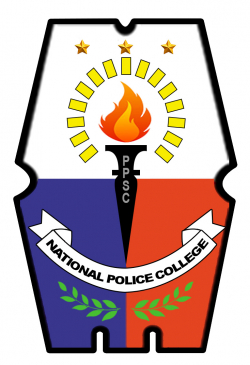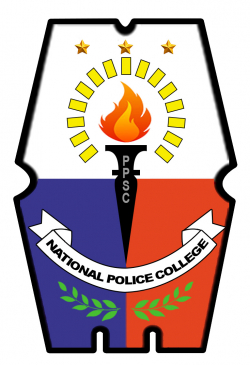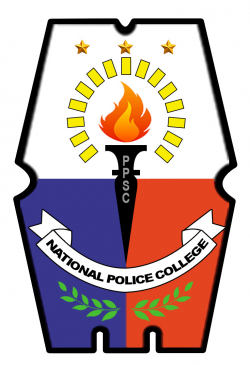NURTURING PUBLIC SAFETY PROFESSIONALS IN THE PHILIPPINE NATIONAL POLICE ACADEMY

Type
Thesis
Authors
PLTCOL FERMEL C. DELA CRUZ ( PLTCOL MYLENE P. MANESE PLTCOL RICHARD J. SALANGUIT )
Category
PSOSEC
[ Browse Items ]
Publication Year
2024
Abstract
The study titled “Nurturing Public Safety Professional in the Philippine National Police Academy” employs quantitative research design to investigate the processes and outcomes associated with nurturing public safety professional within the Philippine National Police Academy (PNPA). Utilizing approaches triangulation, the research collected data through surveys, standardized assessments, and archival data analysis, ensuring a comprehensive understanding of the nurturing processes.
Primary data sources included surveys and interviews with cadets, faculty, and alumni, which provided firsthand insights into their experiences. Secondary sources, such as academic journals and government reports, contextualized these findings within the existing literature on law enforcement education. The structured survey instrument assessed demographic information and challenges related to transformational leadership components essential for developing competent public safety professionals.
Reliability analysis indicated high internal consistency across various respondent groups. Key findings revealed a significant disparity between the perceptions of PNPA leadership and recent graduates regarding transformational leadership processes. While leaders exhibited strong confidence in their effectiveness, graduates identified critical areas needing enhancement, particularly in ethical decision-making and perception management. The overall mean score categorized as “Agree,” indicates that respondents acknowledge challenges in nurturing idealized influence within the academy. Notably, the highest mean scores were observed in “Managing Perceptions” and “Perpetuation of Traditional Hierarchies,” while the lowest mean was in “Teaching Ethical Decision-Making in Complex Situations,” highlighting a critical for improvement in this area.
The study emphasizes the importance of personalized guidance and mentorship, fostering a culture of inspiration and motivation to cultivate effective public safety professionals. Proposed action plans include enhancing ethical training, developing mentorship programs, and implementing feedback mechanisms to bridge the perception gap between leaders and graduates, ultimately strengthening the PNPA’s role in nurturing competent public safety professionals capable of addressing diverse community needs.
The proposed integrated action plan aims to enhance critical thinking and intellectual curiosity among public safety stakeholders at the PNPA, including cadets, graduates, leaders, and professors. This initiative will create a dynamic learning environment that empowers individuals to adapt to challenges and drive positive change in the field.
Primary data sources included surveys and interviews with cadets, faculty, and alumni, which provided firsthand insights into their experiences. Secondary sources, such as academic journals and government reports, contextualized these findings within the existing literature on law enforcement education. The structured survey instrument assessed demographic information and challenges related to transformational leadership components essential for developing competent public safety professionals.
Reliability analysis indicated high internal consistency across various respondent groups. Key findings revealed a significant disparity between the perceptions of PNPA leadership and recent graduates regarding transformational leadership processes. While leaders exhibited strong confidence in their effectiveness, graduates identified critical areas needing enhancement, particularly in ethical decision-making and perception management. The overall mean score categorized as “Agree,” indicates that respondents acknowledge challenges in nurturing idealized influence within the academy. Notably, the highest mean scores were observed in “Managing Perceptions” and “Perpetuation of Traditional Hierarchies,” while the lowest mean was in “Teaching Ethical Decision-Making in Complex Situations,” highlighting a critical for improvement in this area.
The study emphasizes the importance of personalized guidance and mentorship, fostering a culture of inspiration and motivation to cultivate effective public safety professionals. Proposed action plans include enhancing ethical training, developing mentorship programs, and implementing feedback mechanisms to bridge the perception gap between leaders and graduates, ultimately strengthening the PNPA’s role in nurturing competent public safety professionals capable of addressing diverse community needs.
The proposed integrated action plan aims to enhance critical thinking and intellectual curiosity among public safety stakeholders at the PNPA, including cadets, graduates, leaders, and professors. This initiative will create a dynamic learning environment that empowers individuals to adapt to challenges and drive positive change in the field.
Number of Copies
1
| Library | Accession No | Call No | Copy No | Edition | Location | Availability |
|---|---|---|---|---|---|---|
| NPC Library | 676874 | 1 | Yes |



